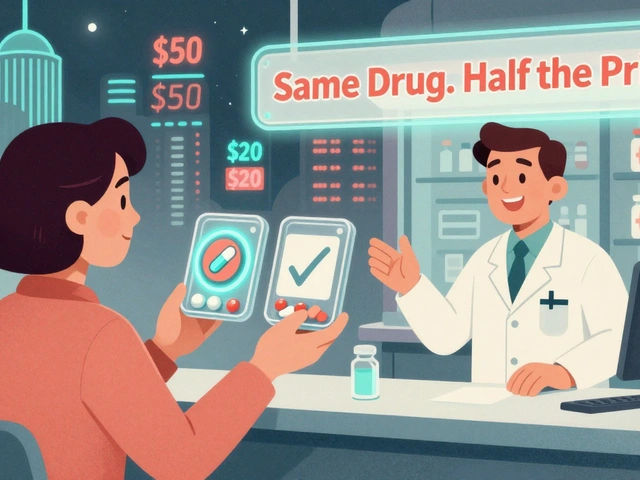Atenolol: Uses, Dosage, Side Effects & Safety
Atenolol is a beta-blocker commonly prescribed for high blood pressure, chest pain (angina), and after a heart attack to lower risk of further problems. It slows your heart rate and reduces the heart's workload, which helps lower blood pressure and ease chest pain. Doctors may choose atenolol when a steady, once-daily beta-blocker is needed. It's available as tablets in various strengths.
How it works is simple: atenolol blocks beta-1 receptors in the heart, which cuts down on adrenaline-driven heart activity. That reduces pulse and blood pressure and makes the heart use less oxygen. If you feel your heart racing, atenolol can help bring it down to a safer level.
Quick dosing guide
Typical starting doses for adults are 25–50 mg once daily for high blood pressure; doses may go up to 100 mg once daily depending on response and doctor advice. For angina or after a heart attack, your doctor will pick a dose based on your condition and other medicines. Take atenolol at the same time each day, with or without food. If you miss a dose, take it as soon as you remember unless it's almost time for the next dose—don't double up.
Safety tips when taking atenolol
Common side effects include tiredness, cold hands or feet, slow heartbeat, and dizziness. Most people tolerate the drug, but serious reactions like severe shortness of breath, fainting, or very slow pulse need immediate medical help. People with asthma or severe breathing problems should usually avoid atenolol because it can tighten airways.
Atenolol can mask low blood sugar symptoms in people with diabetes, so check glucose levels more often when starting or changing dose. Also tell your doctor if you have kidney problems; atenolol is removed by the kidneys and doses may need adjustment.
Watch for drug interactions. Combining atenolol with other heart medications such as calcium channel blockers (like verapamil or diltiazem), digoxin, or certain antiarrhythmics can lower heart rate too much. Don't start or stop medicines, including herbal products, without checking with your prescriber.
If you're pregnant, planning pregnancy, or breastfeeding, discuss options with your doctor. Atenolol can affect fetal growth and is usually not the first choice during pregnancy.
Want to buy atenolol online? You should only use a licensed pharmacy and a valid prescription. Many online sites sell medications, but illegal sellers may send wrong doses or poor-quality pills. Check for pharmacy accreditation, clear contact info, and a requirement for a prescription.
Your doctor will usually check blood pressure and pulse after starting atenolol and adjust dose as needed. Keep a record of readings at home and bring it to appointments. If you plan to stop atenolol, the doctor will often reduce the dose gradually to avoid rebound high blood pressure or chest pain.
Questions for your prescriber: ask how long you'll be on atenolol, what target blood pressure to aim for, signs that need urgent care, and how it interacts with your other drugs. Clear, simple answers make it safer and easier to use.
Bring a list of all medications to every clinic visit.
 13 May 2023
13 May 2023
Can atenolol cause or worsen depression? What you need to know
As a blogger, I recently researched the potential link between atenolol and depression. Atenolol is a beta-blocker commonly prescribed for high blood pressure and heart issues, but it's important to know that it can sometimes cause or worsen depression in certain individuals. It's unclear why this occurs, but some experts believe it may be due to the drug's effect on brain chemicals. If you're taking atenolol and are experiencing symptoms of depression, it's crucial to discuss this with your healthcare provider. They may suggest an alternative medication or provide additional support to help manage your mental health.
Latest Posts
-

Exploring Top Alternatives to Zithromax: Effective Antibiotics in 2025
-

How to Use Blister Packs and Pill Organizers to Prevent Medication Mistakes
-

Tansy Essential Oil: Skin Benefits, Safe Use, and Practical Applications
-

Authorized Generic Pricing: Why They Cost Less Than Brand Name Drugs
-
Unlock the Power of Alfalfa: The Ultimate Dietary Supplement for a Healthier You!

12